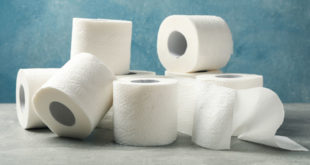A Healthy Gut
Our digestive system harbors many bacteria and they help us to keep a healthy gut. They also help us digest food, make certain vitamins or destroy other bacteria or microorganisms that might cause diseases. Sometimes, using antibiotics or battling chronic diarrhea can compromise our gut health. Long term diseases such as irritable bowel syndrome can also compromise our health. The level of good bacteria may drop and we can experience stomach upset, diarrhea and other symptoms. By adding good bacteria in the form of probiotics to the gut, we may reduce or eliminate symptoms. (1)
Is the research supportive of this? Researchers’ initial reports are promising. The evidence points to probiotics being helpful in preventing antibiotic- or infection-induced diarrhea and reducing the symptoms associated with irritable bowel syndrome. Research reports other areas of possible benefits, and researchers are exploring eczema, hay fever, tooth decay, colic in infants, liver disease, and the common cold.
Good Bacteria
What kind of bacteria do we find in probiotics? The most popular types of probiotic bacteria are Lactobacillus and Bifidobacterium. There are several types under each of these groups and they are thought to be beneficial. We find probiotics in dairy drinks like Kefir, milk, soy or coconut yogurts, sauerkraut, kimchi, tempeh, supplements and other forms.
Adding yogurt to breakfast, tempeh to a favorite dish for lunch and a Kefir drink for dinner can help build up the intake of probiotics. Read the label of the favorites to see if probiotics are included and make these foods a part of everyday eating.
Reference:
Probiotics: In Depth. National Center for Complementary and Integrative Health. nccih.nih.gov. Accessed July 31, 2018.
Pamela Williams writes from Southern California.
© 2002 - 2025, AnswersForMe.org. All rights reserved. Click here for content usage information. Answers for Me Support & encouragement for every-day life
Answers for Me Support & encouragement for every-day life



